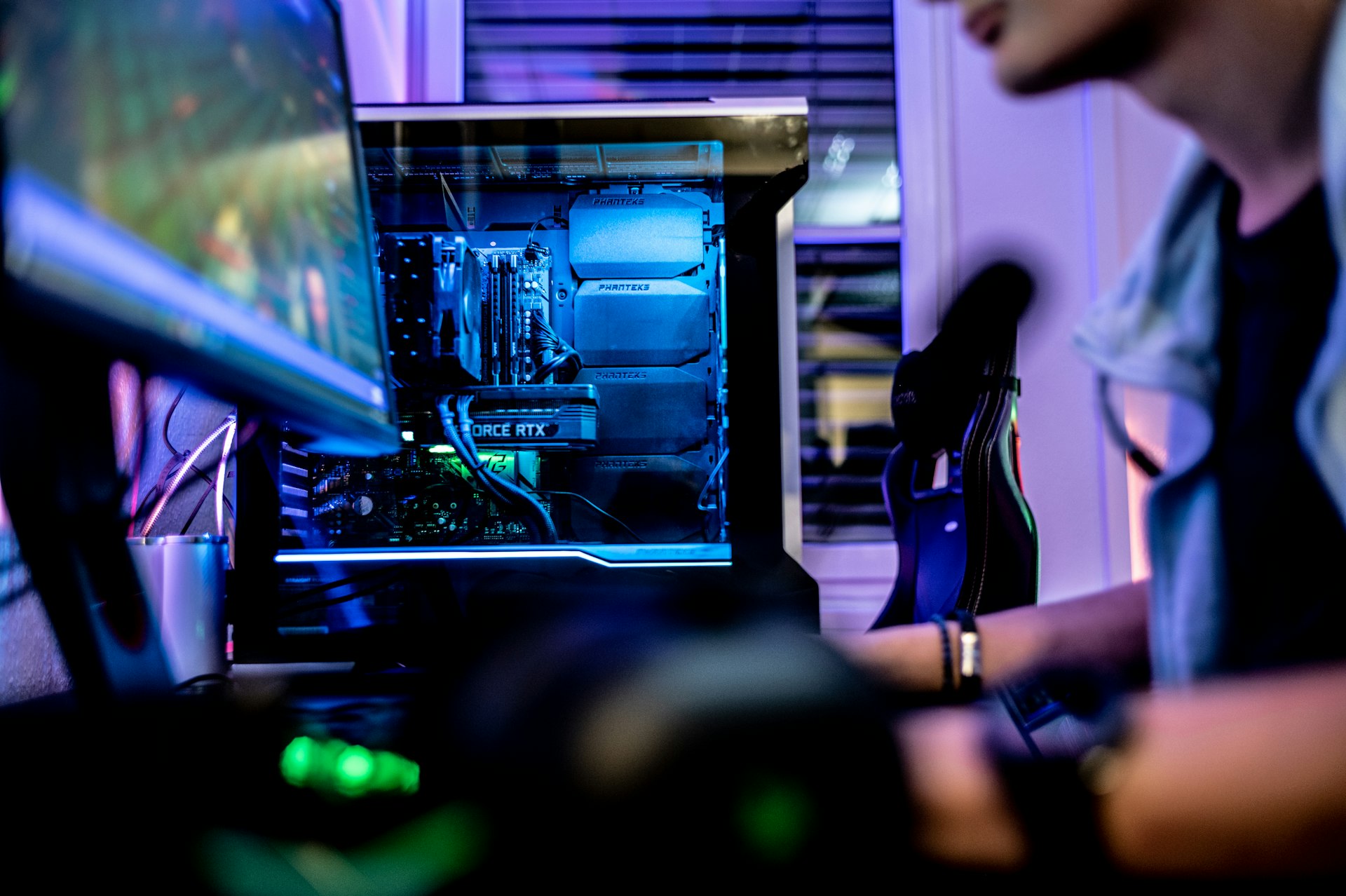Navigating AI Ethics in Gaming: Challenges, Solutions, and Practical Steps for Responsible Innovation

Photo by Igor Karimov 🇺🇦 on Unsplash
Introduction: The New Frontier of Gaming and AI Ethics
Artificial intelligence (AI) is revolutionizing the gaming industry, powering everything from dynamic non-playable characters to real-time anti-cheat systems and personalized experiences. However, as AI becomes increasingly integral to game development and gameplay, it introduces a host of ethical challenges that developers, publishers, and players must address. Understanding and implementing AI ethics is no longer optional-it is critical for fostering trust, maintaining fairness, and ensuring the long-term sustainability of the industry [1] .
Defining AI Ethics in Gaming
AI ethics in gaming refers to the principles and guidelines governing the design, deployment, and management of artificial intelligence systems within games. These principles aim to ensure that AI technologies promote fairness, respect privacy, prevent misuse, and align with societal values and human rights [1] . Regulatory compliance adds another layer, requiring adherence to legal frameworks and standards that mitigate risks and protect stakeholders across jurisdictions.
Core Ethical Challenges in Gaming AI
Several primary ethical concerns shape the discussion around AI in gaming:
1. Bias and Inclusivity
AI systems learn from vast datasets, and if these datasets reflect societal biases, the AI will inevitably reproduce or even amplify them. In gaming, this can lead to in-game characters or scenarios that reinforce stereotypes or exclude marginalized groups. Addressing this issue requires ongoing efforts to refine AI training data and algorithms, ensuring a more inclusive experience for all players [2] .
Example: Developers can audit AI training data for representational gaps and use third-party tools to test for bias in game content. Some studios are now forming internal ethics review boards to oversee these processes.
Implementation Guidance: Game developers should regularly evaluate their data sources, involve diverse creative teams, and consult with inclusivity experts to identify and mitigate bias before release.
2. Data Privacy
Many games collect large amounts of player data to enable AI-driven personalization. Without robust privacy frameworks, this data collection can expose players to risks, including data breaches or misuse of sensitive information. Compliance with laws such as the European Union’s General Data Protection Regulation (GDPR) is essential. Developers must be transparent about data collection and usage, providing clear privacy policies and options for users to control their data [2] .
Example: “World of Warcraft” and other major titles now include prompts for users to review privacy policies and set preferences for data sharing.
Implementation Guidance: To protect privacy, studios should encrypt data, minimize retention periods, and offer user-friendly opt-out features. Developers can consult privacy-focused organizations or legal advisors to stay current with evolving regulations.
3. Addiction and Player Well-being
AI can be used to make games more engaging, but without oversight, it can also contribute to addictive behaviors. Some AI systems monitor user engagement and can prompt players to take breaks if intense or compulsive play is detected. This approach not only supports player well-being but also aligns with growing social responsibility expectations in the industry [2] .
Example: AI-driven prompts in online games encourage players to step away after prolonged sessions, supporting healthier gaming habits.
Implementation Guidance: Developers can integrate algorithms that assess play patterns and offer non-intrusive reminders or limit certain features after excessive gameplay. Consult psychologists or behavioral experts when designing these systems.
4. Fair Play and Anti-Cheating
Cheating undermines game integrity and player trust. AI-powered detection systems can monitor for suspicious behavior, flagging or banning cheaters in real time. Games like “Counter-Strike: Global Offensive” have demonstrated the effectiveness of AI in maintaining fair competition [2] .
Example: Real-time AI moderation tools that analyze gameplay and communication logs to detect cheating or abusive conduct.
Implementation Guidance: Developers should test anti-cheat AI with diverse datasets, regularly update detection methods, and offer transparent appeal processes for players who feel they were wrongly penalized.
5. Transparency and Accountability
Players and regulators increasingly demand transparency in how AI decisions are made, especially when they impact gameplay or user rights. Developers should provide clear explanations of AI systems’ functionality and offer ways for users to contest or appeal automated decisions [3] .
Implementation Guidance: Publish detailed documentation of AI systems, host community Q&As, and incorporate feedback mechanisms for players to report concerns or errors.
Practical Steps for Implementing Ethical AI in Games
To address these challenges, game developers and publishers should consider the following actionable strategies:
Adopt Industry-Recognized Ethical Frameworks
Organizations such as the Institute for Experiential AI at Northeastern University recommend that studios implement responsible AI frameworks, which provide step-by-step guidance for integrating ethical considerations throughout the development lifecycle [3] . These frameworks help ensure consistency and offer practical tools such as checklists, bias detection protocols, and privacy impact assessments.
Build Cross-Functional Ethics Teams
Establishing dedicated teams with expertise in ethics, law, technology, and user experience can help studios navigate complex challenges. These teams can review AI-driven features before launch, develop internal policies, and respond to emerging concerns [1] .
Engage with Player Communities
Transparency and accountability are fostered by open dialogue. Developers should regularly engage with their player base to gather feedback, identify pain points, and co-design solutions to ethical dilemmas. Community input often uncovers issues missed by internal teams.
Regularly Audit and Update AI Systems
Ethical challenges evolve as AI and gaming technologies advance. Developers must continuously audit AI tools, retrain models to reflect societal changes, and update policies to address new risks [4] . For example, as new types of content or player behaviors emerge, ethical guidelines should adapt accordingly.
Challenges and Solutions in Practice
Implementing AI ethics is not without difficulties. Common challenges include:
Data Quality and Copyright: Sloppy data training can lead to copyright violations or self-feeding loops that generate poor outcomes. It is essential to verify data sources, respect intellectual property rights, and ensure datasets are diverse and representative [4] .
Resource Constraints: Smaller studios may lack the resources to build in-depth ethics teams or frameworks. In such cases, open-source tools, industry partnerships, or third-party audits can provide cost-effective alternatives.

Photo by Andreas Haslinger on Unsplash
Changing Societal Norms: Societal preferences evolve, and what is considered acceptable today may shift tomorrow. Developers must monitor trends and remain flexible, updating AI systems and policies as needed.
Alternative Approaches and Additional Resources
Not all developers will take the same path. Some may prioritize technical solutions (like automated bias detection), while others invest in community governance or external audits. Professional organizations and academic institutions frequently publish best practices and case studies, which developers can reference for guidance.
If you are a game developer or publisher seeking to implement AI ethics:
- Consult your legal team about compliance with local and international data privacy laws
- Engage with organizations such as the Institute for Experiential AI or attend industry events like the Game Developers Conference to stay updated on best practices
- Consider forming partnerships with academic researchers or ethics consultants for external expertise
- Use search engines with keywords like “AI ethics in gaming best practices” or “responsible AI frameworks for game development” to find current resources and guidance
Key Takeaways
Ethical AI in gaming is a complex, evolving field that requires ongoing commitment from all stakeholders. By adopting robust frameworks, engaging with communities, and prioritizing transparency, the industry can harness AI’s potential while minimizing risks. The future of gaming depends not just on technological innovation, but on responsible, ethical decision-making at every stage.
References
- [1] Meegle (2025). AI Ethics In Gaming: Principles, Challenges, and Innovations.
- [2] Lenovo (2025). Ethical Considerations of AI in Gaming.
- [3] Northeastern University News (2024). Why Developers Need Ethical Frameworks for AI in Gaming.
- [4] Autodesk Media & Entertainment (2025). Navigating the Complexities of AI Ethics in Game Development.
- [5] IEEE Computer Society (2024). The Ethics of AI in Games.
MORE FROM dealseekersguide.com













